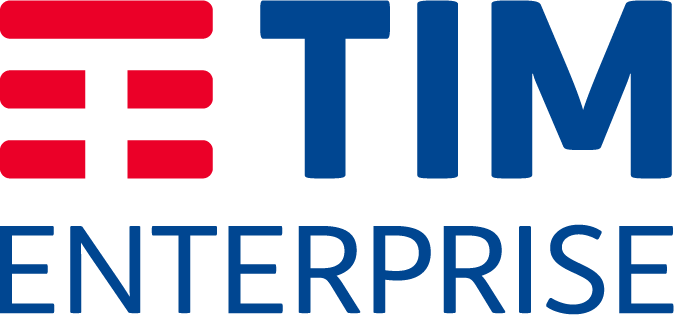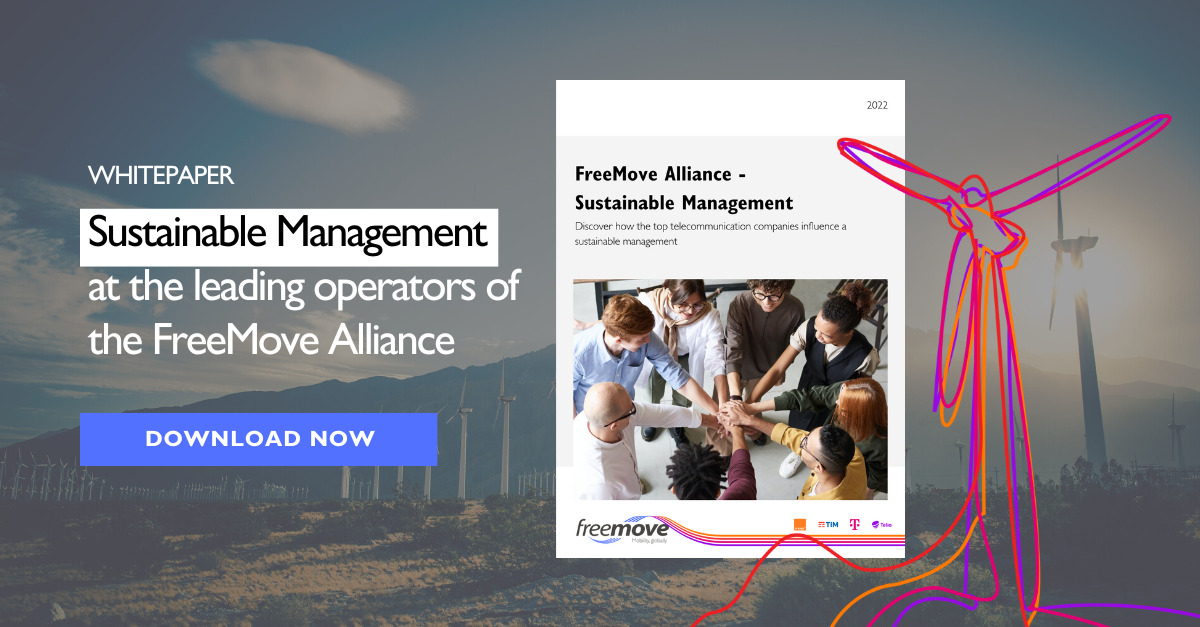The FreeMove Alliance’s members have made significant commitments to environmental responsibility with initiatives around emission reduction, equipment recycling, and climate neutral operations. The significantly improved technical efficiency of 5G networks, along with the innovative applications the technology makes possible, will have a strong positive impact.
Technological advances
5G was designed from the start to address energy issues through a number of efficiency mechanisms. Studies conducted by Orange demonstrated that current 5G networks consumed half as much energy as 4G. It is anticipated that by 2025, 5G will be 10 times more energy efficient than 4G and enhancing its efficiency to a factor of 20 by 2030. This is accomplished by implementing beamforming using Massive MIMO (Multiple Input Multiple Output) antennas, deep wake modes to turn off equipment in low demand situations, and significantly optimised power amplifiers.
The technology’s improved speed, increased capacity, and low latency offer new ways to empower a broad range of sustainability initiatives by supporting the increasing proliferation of “smart” devices and the Internet of Things (IoT).
Innovation
5G potential impact on sustainability goes beyond increased network efficiency. The technology enables a wide variety of innovative applications across many sectors.
5G for Connected and Automated Road Mobility in the European Union, or simply 5G-Carmen, is an initiative supported by the European Union to promote research and experimentation in the development of a new sustainable, automated, co-operative, and connected mobility model, using 5G. The 25 partners include BMW, TIM, Deutsche Telekom, Nokia, Qualcomm, and several university and research bodies.
In an early test, sensor infrastructure installed on the A22 motorway (the Brenner Motorway, from Bologna to Monaco) was connected to sensors on vehicles highlighted the danger from heavy rains and transmitted the information through the 5G network on the TIM Edge Cloud platform to a second vehicle entering the area. The second vehicle, informed of the risk, reduced its speed in order to travel more safely.
In another test, focused on environmental impact, the system installed on the A22 detected critical environmental pollution on a specific stretch of road and then sent vehicles suggestions on the speed they should travel. This enabled vehicles to reduce their “footprint”.
Industries that are normally considered less technologically oriented can also benefit from 5G networks. Telia collaborated with Ekobot, the aggrotech research institute RISE, and network video company Axis Communications in a pilot to connect, monitor and remote control an autonomous field robot used for mechanical weed control.
The use of the robot allows farmers to automate manual work and reduce their dependence on chemical herbicides. Powerful sensors mounted on the robot generate a data which is transmitted via 5G, analysed in cloud services, sent back to the robot, and then made available to farmers. The robot can also be remote steered which requires real-time data feeds. This system supports Ekobot’s goal to offer practical and sustainable solutions to agricultural issues while reducing workload with autonomous tools for vegetable farmers.
Collaborating with customers on sustainability
Carriers and handset manufacturers are finding ways to allow their customers to become partners in their sustainability initiatives by offering 5G smartphones made using recycled and ethically sourced materials. They are also supporting the recycling and reuse of older devices and offering of longer warranties, spare parts, and continued support to extend the device lifecycle and reduce waste.
For example, in September of 2021, Deutsche Telekom and Fairphone began offering the world’s first sustainable 5G-capable smartphone. The Fairphone 4 is the first electronic waste-neutral cell phone on the market. It has a modular design, is wrapped in 100 percent recycled material, and uses ethically obtained green resources. The Fairphone 4 is currently the only smartphone to be awarded the German Blue Angel eco-label and has received a top score of 85/100 points in the Eco Rating.
Learn more about Sustainable Management from our latest whitepaper!








